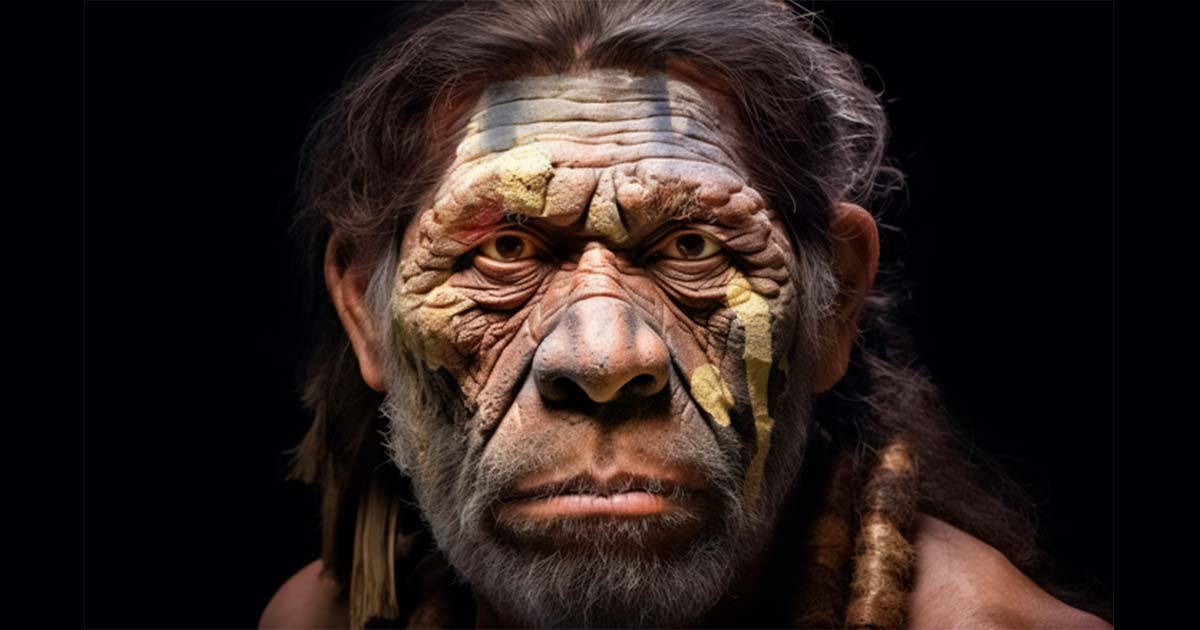Exploring the enigmatic aspects of Neanderthal psychology reveals intriguing facets of their cognitive landscape. While understanding an extinct species’ psyche is speculative, scholars offer informed insights. Evidence once suggested Neanderthals, despite their tool use, lacked Homo sapiens’ creative edge, but now evidence of Neanderthals creativity has been found. More evidence is suggesting that Modern Humans and Neanderthals are not separate species.
Their effective long-term memory, inferred from hunting practices, contrasts with limited short-term memory, evident in simplistic tool use. Osteopathic data implies frequent inter-group aggression, hinting at potential antisocial tendencies.
Intriguingly, Neanderthals exhibited strong kin-based connections, evident in meticulous burials, implying compassion within family units. Notably, their small group size, around 8-10 individuals, distinguishes them from socially evolved Homo sapiens.
This limited socialization likely hindered the development of traits vital for navigating complex societies, possibly rendering them socially anxious and xenophobic.
Regarding extinction theories, debates persist. Climate change or Homo sapiens’ technological advantage could be reasons. Modern humans, with superior tools and social organization, may have outcompeted Neanderthals. However, Neanderthal genes persist in our DNA, influencing traits like social fear and anxiety. Research on the “Neanderthal quotient” links genetic variations to personality traits, shedding light on our ancient ancestors’ enduring impact on modern psychology.
Top image: Image of an ancient skulls. Source: Alexandra /Adobe Stock
By Robbie Mitchell

Dr. Thomas Hughes is a UK-based scientist and science communicator who makes complex topics accessible to readers. His articles explore breakthroughs in various scientific disciplines, from space exploration to cutting-edge research.








